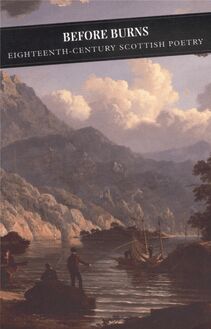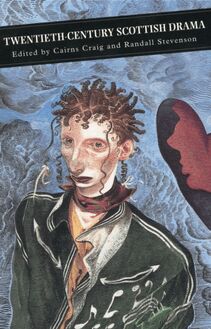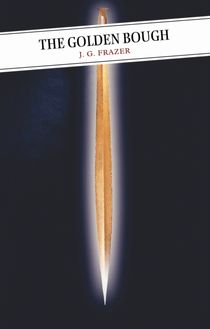-
 Univers
Univers
-
 Ebooks
Ebooks
-
 Livres audio
Livres audio
-
 Presse
Presse
-
 Podcasts
Podcasts
-
 BD
BD
-
 Documents
Documents
-
- Cours
- Révisions
- Ressources pédagogiques
- Sciences de l’éducation
- Manuels scolaires
- Langues
- Travaux de classe
- Annales de BEP
- Etudes supérieures
- Maternelle et primaire
- Fiches de lecture
- Orientation scolaire
- Méthodologie
- Corrigés de devoir
- Annales d’examens et concours
- Annales du bac
- Annales du brevet
- Rapports de stage
La lecture à portée de main
Vous pourrez modifier la taille du texte de cet ouvrage
Découvre YouScribe en t'inscrivant gratuitement
Je m'inscrisDécouvre YouScribe en t'inscrivant gratuitement
Je m'inscrisEn savoir plus
Vous pourrez modifier la taille du texte de cet ouvrage
En savoir plus

Description
Informations
| Publié par | Canongate Books |
| Date de parution | 01 juillet 2010 |
| Nombre de lectures | 0 |
| EAN13 | 9781847674678 |
| Langue | English |
| Poids de l'ouvrage | 1 Mo |
Informations légales : prix de location à la page 0,0480€. Cette information est donnée uniquement à titre indicatif conformément à la législation en vigueur.
Extrait
THOMAS CARLYLE
Sartor Resartus
The Life and Times of Herr Teufelsdröckh
Introduction by
Alasdair Gray
ILLUSTRATED BY
Edmund J. Sullivan
Summary of Contents
Introduction
Letter of Introduction from the Illustrator
List of Illustrations
Testimonies of Authors
BOOK ONE
Chapter 1: Preliminary
No Philosophy of Clothes yet, notwithstanding all our Science. Strangely forgotten that Man is by nature a naked animal. The English mind all-too practically absorbed for any such inquiry. Not so, deep-thinking Germany. Advantage of Speculation having free course. Editor receives from Professor Teufelsdröckh his new Work on Clothes.
Chapter 2: Editorial Difficulties
How to make known Teufelsdröckh and his Book to English readers; especially such a book? Editor receives from the Hofrath Heuschrecke a letter promising Biographic Documents. Negotiations with Oliver Yorke. Sar tor Resartus conceived. Editor’s assurances and advice to his British reader.
Chapter 3: Reminiscences
Teufelsdröckh at Weissnichtwo. Professor of Things in General at the University there: Outward aspect and character; memorable coffee-house utterances; domicile and watch-tower: Sights thence of City-Life by day and by night; with reflections thereon. Old ’Liza and her ways. Character of Hofrath Heuschrecke, and his relation to Teufelsdröckh.
Chapter 4: Characteristics
Teufelsdröckh and his Work on Clothes: Strange freedom of speech; transcendentalism; force of insight and expression; multifarious learning: Style poetic, uncouth: Comprehensiveness of his humour and moral feeling. How the Editor once saw him laugh. Different kinds of Laughter and their significance.
Chapter 5: The World in Clothes
Futile cause-and-effect Philosophies. Teufelsdröckh’s Orbis Vestitus. Clothes first invented for the sake of Ornament. Picture of our progenitor, the Aboriginal Savage. Wonders of growth and progress in mankind’s history. Man defined as a Tool-using Animal.
Chapter 6: Aprons
Divers Aprons in the world with divers uses. The Military and Police Establishment Society’s working Apron. The Episcopal Apron with its corner tucked in. The Laystall. Journalists now our only Kings and Clergy.
Chapter 7: Miscellaneous-Historical
How Men and Fashions come and go. German Costume in the fifteenth century. By what strange chances do we live in History! The costume of Bolivar’s Cavalry.
Chapter 8: The World out of Clothes
Teufelsdröckh’s Theorem, ‘Society founded upon Cloth;’ his Method, Intuition quickened by Experience. – The mysterious question, Who am I? Philosophic systems all at fault: A deeper meditation has always taught, here and there an individual, that all visible things are appearances only; but also emblems and revelations of God. Teufelsdröckh first comes upon the question of Clothes: Baseness to which Clothing may bring us.
Chapter 9: Adamitism
The universal utility of Clothes, and their higher mystic virtue, illustrated. Conception of Mankind stripped naked; and immediate consequent dissolution of civilised Society.
Chapter 10: Pure Reason
A Naked World possible, nay actually exists, under the clothed one. Man, in the eye of Pure Reason, a visible God’s Presence. The beginning of all wisdom, to look fixedly on Clothes till they become transparent. Wonder, the basis of Worship: Perennial in man. Modern Sciolists who cannot wonder: Teufelsdröckh’s contempt for, and advice to them.
Chapter 11: Prospective
Nature not an Aggregate, but a Whole. All visible things are emblems, Clothes; and exist for a time only. The grand scope of the Philosophy of Clothes. – Biographic Documents arrive. Letter from Heuschrecke on the importance of Biography. Heterogeneous character of the documents: Editor sorely perplexed; but desperately grapples with his work.
BOOK TWO
Chapter 1: Genesis
Old Andreas Futteral and Gretchen his wife: their quiet home. Advent of a mysterious stranger, who deposits with them a young infant, the future Herr Diogenes Teufelsdröckh. After-yearnings of the youth for his unknown Father. Sovereign power of Names and Naming. Diogenes a flourishing Infant.
Chapter 2: Idyllic
Happy Childhood! Entepfuhl: Sights, hearings and experiences of the boy Teufelsdröckh; their manifold teaching. Education; what it can do, what it cannot. Obedience our universal duty and destiny. Gneschen sees the good Gretchen pray.
Chapter 3: Pedagogy
Teufelsdröckh’s School. His Education. How the ever-flowing Kuhbach speaks of Time and Eternity. The Hinterschlag Gymnasium: rude Boys; and pedant Professors. The need of true Teachers, and their due recognition. Father Andreas dies; and Teufelsdröckh learns the secret of his birth: His reflections thereon. The Nameless University. Statistics of Imposture much wanted. Bitter fruits of Rationalism: Teufelsdröckh’s religious difficulties. The young Englishman Herr Towgood. Modern Friendship.
Chapter 4: Getting under Way
The grand thaumaturgic Art of Thought. Difficulty in fitting Capability to Opportunity, or of getting under way. The advantage of Hunger and Bread-Studies. Teufelsdröckh has to enact the stern monodrama of No object and no rest . Sufferings as Auscultator. Given up as a man of genius. Zähdarm House. Intolerable presumption of young men. Irony and its consequences. Teufelsdröckh’s Epitaph on Count Zähdarm.
Chapter 5: Romance
Teufelsdröckh gives up his Profession. The heavenly mystery of Love. Teufelsdröckh’s feeling of worship towards women. First and only love. Blumine. Happy hearts and free tongues. The infinite nature of Fantasy. Love’s joyful progress; sudden dissolution; and final catastrophe.
Chapter 6: Sorrows of Teufelsdröckh
Teufelsdröckh’s demeanour thereupon. Turns pilgrim. A last wistful look on native Entepfuhl: Sunset amongst primitive Mountains. Basilisk-glance of the Barouche-and-four. Thoughts on View-hunting. Wanderings and Sorrowings.
Chapter 7: The Everlasting No
Loss of Hope, and of Belief. Profit-and-Loss Philosophy. Teufelsdröckh in his darkness and despair still clings to Truth and follows Duty. Inexpressible pains and fears of Unbelief. Fever-crisis: Protest against the Everlasting No: Baphometic Fire-baptism.
Chapter 8: Centre of Indifference
Teufelsdröckh turns now outwardly to the Not-me ; and finds wholesomer food. Ancient Cities: Mystery of their origin and growth: Invisible inheritances and possessions. Power and virtue of a true Book. Wagram Battlefield: War. Great Scenes beheld by the Pilgrim: Great Events, and Great Men. Napoleon, a divine missionary, preaching La carrière ouverte aux talens . Teufelsdröckh at the North Cape: Modern means of self-defence. Gunpowder and Duelling. The Pilgrim, despising his miseries, reaches the Centre of Indifference.
Chapter 9: The Everlasting Yea
Temptations in the Wilderness: Victory over the Tempter. Annihilation of Self. Belief in God, and love to Man. The Origin of Evil, a problem ever requiring to be solved anew: Teufelsdröckh’s solution. Love of Happiness a vain whim: A Higher in man than Love of Happiness. The Everlasting Yea. Worship of Sorrow. Voltaire: his task now finished. Conviction worthless, impossible, without Conduct. The true Ideal, the Actual: Up and work!
Chapter 10: Pause
Conversion; a spiritual attainment peculiar to the modern Era. Teufelsdröckh accepts Authorship as his divine calling. The scope of the command Thou shalt not steal . – Editor begins to suspect the authenticity of the Biographical documents; and abandons them for the great Clothes volume. Result of the preceding ten Chapters: Insight into the character of Teufelsdröckh: His fundamental beliefs, and how he was forced to seek and find them.
BOOK THREE
Chapter 1 : Incident in Modern History
Story of George Fox the Quaker; and his perennial suit of Leather. A man God-possessed, witnessing for spiritual freedom and manhood.
Chapter 2: Church Clothes
Church Clothes defined; the Forms under which the Religious Principle is temporarily embodied. Outward Religion originates by Society: Society becomes possible by Religion. The condition of Church Clothes in our time.
Chapter 3: Symbols
The benignant efficacies of Silence and Secrecy. Symbols; revelations of the Infinite in the Finite: Man everywhere encompassed by them; lives and works by them. Theory of Motive-millwrights, a false account of human nature. Symbols of an extrinsic value; as Banners, Standards: Of intrinsic value; asWorks of Art, Lives and Deaths of Heroic men. Religious Symbols; Christianity. Symbols hallowed by Time; but finally defaced and desecrated. Many superannuated Symbols in our time, needing removal.
Chapter 4: Helotage
Heuschrecke’s Malthusian Tract, and Teufelsdröckh’s marginal notes thereon. The true workman, for daily bread, or spiritual bread, to be honoured; and no other. The real privation of the Poor not poverty or toil, but ignorance. Over-population: With a world like ours and wide as ours, can there be too many men? Emigration.
Chapter 5: The Phúnix
Teufelsdröckh considers Society as dead ; its soul (Religion) gone, its body (existing Institutions) going. Utilitarianism, needing little farther preaching, is now in full activity of destruction. – Teufelsdröckh would yield to the Inevitable, accounting that the best: Assurance of a fairer Living Society, arising, Phœnix-like, out of the ruins of the old dead one. Before that Phúnix death-birth is accomplished, long time, struggle, and suffering must intervene.
Chapter 6: Old Clothes
Courtesy due from all men to all men: The Body of Man a Revelation in the Flesh. Teufelsdröckh’s respect for Old Clothes, as the ‘Ghosts of Life.’ Walk in Monmouth Street, and meditations there.
Chapter 7: Organic Filaments
Destruction and Creation ever proceed together; and organic filaments of the Future are even now spinning. Wonderful connection of eac
-
 Univers
Univers
-
 Ebooks
Ebooks
-
 Livres audio
Livres audio
-
 Presse
Presse
-
 Podcasts
Podcasts
-
 BD
BD
-
 Documents
Documents
-
Jeunesse
-
Littérature
-
Ressources professionnelles
-
Santé et bien-être
-
Savoirs
-
Education
-
Loisirs et hobbies
-
Art, musique et cinéma
-
Actualité et débat de société
-
Jeunesse
-
Littérature
-
Ressources professionnelles
-
Santé et bien-être
-
Savoirs
-
Education
-
Loisirs et hobbies
-
Art, musique et cinéma
-
Actualité et débat de société
-
Actualités
-
Lifestyle
-
Presse jeunesse
-
Presse professionnelle
-
Pratique
-
Presse sportive
-
Presse internationale
-
Culture & Médias
-
Action et Aventures
-
Science-fiction et Fantasy
-
Société
-
Jeunesse
-
Littérature
-
Ressources professionnelles
-
Santé et bien-être
-
Savoirs
-
Education
-
Loisirs et hobbies
-
Art, musique et cinéma
-
Actualité et débat de société
- Cours
- Révisions
- Ressources pédagogiques
- Sciences de l’éducation
- Manuels scolaires
- Langues
- Travaux de classe
- Annales de BEP
- Etudes supérieures
- Maternelle et primaire
- Fiches de lecture
- Orientation scolaire
- Méthodologie
- Corrigés de devoir
- Annales d’examens et concours
- Annales du bac
- Annales du brevet
- Rapports de stage















